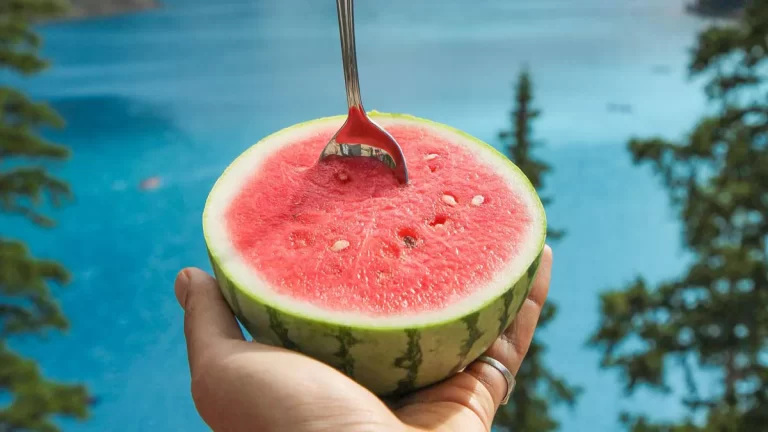Zinc is an essential trace mineral that plays a critical role in maintaining optimal health and supporting a wide range of bodily functions. Despite not being as widely recognized as other nutrients, its importance cannot be overstated. From bolstering the immune system to promoting wound healing and Skin and hair health, zinc provides numerous benefits that are crucial to overall well-being.
The human body cannot store zinc; Therefore, to maintain health, you should use zinc sources and include it in your diet daily. You can use its supplements if you cannot get zinc from natural sources.
In this article, we’ll take a deep dive into the various advantages of zinc for the body and explore its abundant sources.
The Benefits of Zinc for the Body
Immune System Support
Zinc helps strengthen the immune system by supporting the production and function of immune cells, making the body more resilient against infections.
Zinc’s immune-boosting properties are particularly evident during cold and flu seasons.
Wound Healing
Zinc is essential for cell division and growth, which are fundamental processes in wound healing. It aids in synthesizing collagen, a protein crucial for skin repair, and helps prevent infections by supporting the immune response at the wound site.
Healthy Skin
Zinc contributes to maintaining healthy skin by regulating oil production, reducing inflammation, and promoting the healing of blemishes. It’s often used as an ingredient in skincare products due to its potential to alleviate acne symptoms.
Hair Growth and Health
Zinc promotes proper hair follicle growth, prevents hair loss, and maintains scalp health, resulting in strong hair.
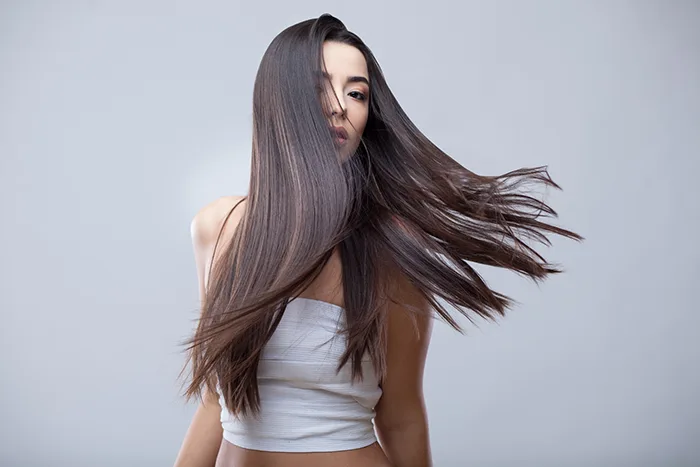
Antioxidant Defense
With its antioxidant properties, zinc neutralizes harmful free radicals, reducing cellular damage and lowering the risk of chronic diseases.
Growth
Humans need zinc for physical growth and development. Zinc deficiency in children and teenagers causes their growth disorders.
Sense of Taste and Smell
Zinc is intricately involved in maintaining the senses of taste and smell. A deficiency can decrease the ability to perceive these senses, impacting the overall enjoyment of food and potentially affecting appetite.
Hormone Regulation
Zinc is vital in regulating hormones, including those involved in growth, development, and reproductive health. It’s essential for male reproductive health, as it’s a key component of enzymes needed for sperm production.

Sources of Zinc
Zinc can be found naturally in a variety of foods, both animal- and plant-based. It is crucial to maintain adequate zinc intake to reap its benefits. Check out these typical sources of zinc found in nature.
- Meat: Red meat, Chicken, Beef, lamb, and pork contain rich sources of zinc.
- Seafood: Shellfish, especially oysters, are among the best natural sources of zinc. Other seafood, such as crab, lobster, and shrimp, also provide substantial amounts.
- Dairy Products: Dairy foods like cheese and yogurt contain zinc. However, the zinc content might be lower compared to animal-based sources.
- Legumes: Beans, lentils, and chickpeas are excellent plant-based sources of zinc. They are especially valuable for vegetarians and vegans.
- Nuts and Seeds: Pumpkin seeds, cashews, and almonds are rich in zinc. These can be consumed as snacks or incorporated into meals and recipes.
- Whole Grains: Whole grains like quinoa, oats, and wheat germ contain some zinc. While the levels might not be as high as in animal sources, they can contribute to overall intake.
- Vegetables and fruits: Mushrooms: Mushrooms, Spinach, Kale and Avocado contains a small amount of zinc.
- Fortified Foods: Some foods, such as breakfast cereals, breads, and milk, are fortified with zinc to enhance nutritional content.
- Dark chocolate: It’s a sweet surprise! dark chocolate contains reasonable amounts of zinc.
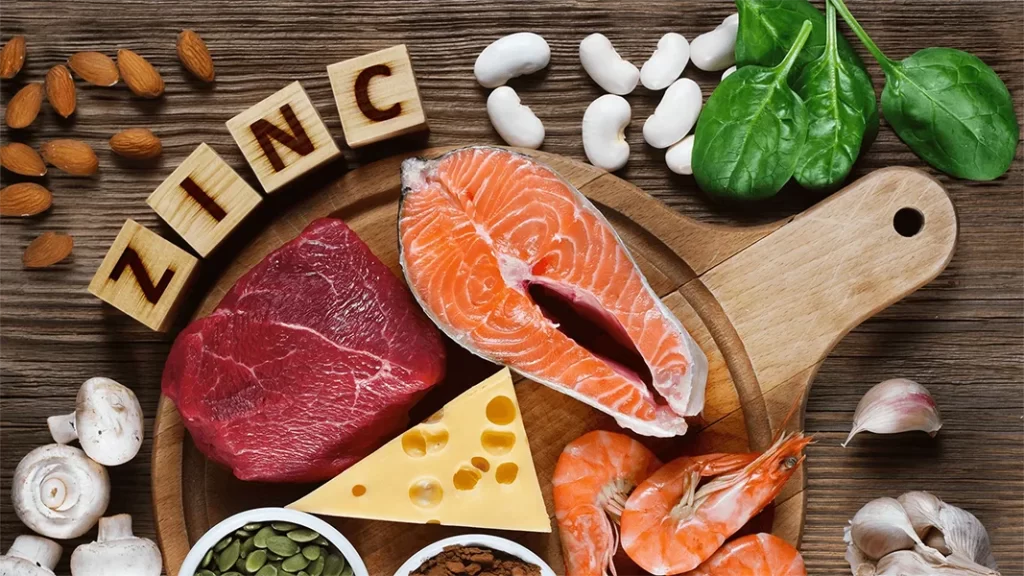
Although it’s best to obtain zinc from food sources, supplements may be necessary for those with deficiencies. It’s crucial not to exceed recommended daily intake levels, as excessive zinc intake can cause harm.
Signs of deficiency zink
- Impaired Immune Function
- Skin Problems like acne, eczema, and dry skin
- Slow Wound Healing
- Hair Loss
- Poor Appetite
- Eye and Vision Problems
- Depressed mood
- Diarrhea and Digestive Issues
- Delayed Growth and Development
- Impaired Fertility
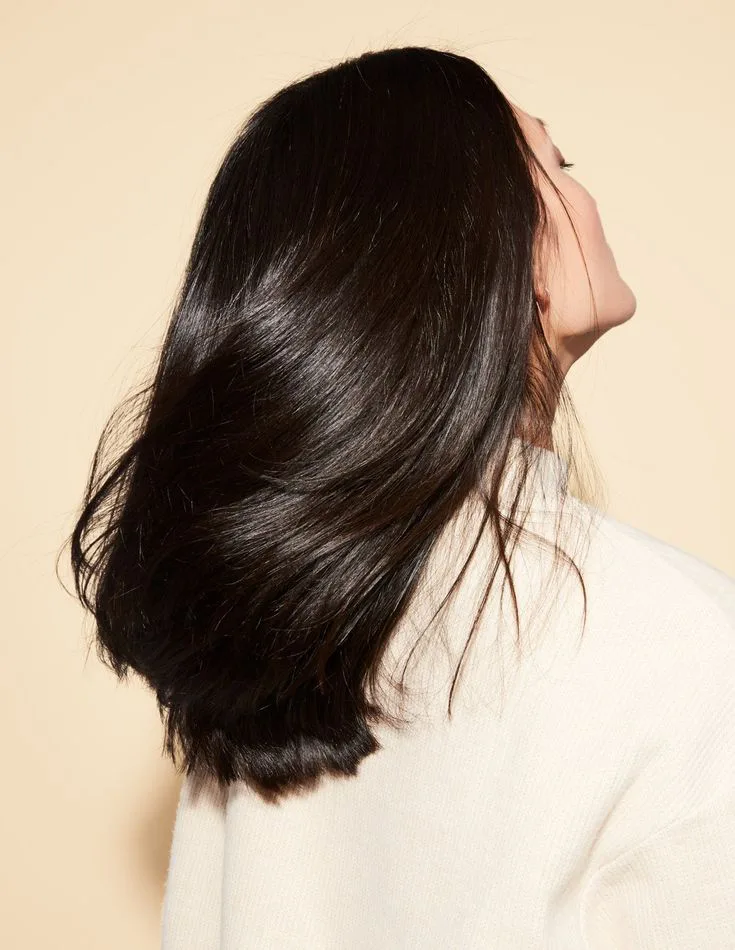
Benefits of Zinc for Hair and Skin
Zinc plays a significant role in promoting healthy hair and skin. Its presence is essential for various processes within the body that contribute to the maintenance and appearance of these external features. Let’s explore how zinc benefits both hair and skin health:
- Wound Healing: Zinc is crucial for proper wound healing. It aids cell division and growth, which is essential for repairing damaged skin. It also supports the formation of collagen, a protein that provides structure to the skin and accelerates the healing of wounds.
- Acne Management: Zinc has anti-inflammatory properties that can help manage acne. It regulates oil production, reduces the production of sebum (skin oil), and has antibacterial effects that can prevent and alleviate acne symptoms.
- Skin Health Maintenance: Zinc’s antioxidant properties help protect skin cells from stress, premature skin aging, and damage caused by free radicals. This protection contributes to maintaining overall skin health and reducing signs of aging.
- Eczema and Psoriasis: Some studies suggest that zinc supplementation might help manage skin conditions like eczema and psoriasis. Zinc’s anti-inflammatory effects and its role in immune function could potentially contribute to improving these conditions.
- Hair Growth: Zinc is involved in the synthesis of DNA and RNA, which are crucial for cell division and the growth of hair follicles. A zinc deficiency could potentially lead to hair thinning and slow hair growth.
- Preventing Hair Loss: Zinc plays a role in maintaining the health of hair follicles and the oil-secreting glands around them. This can have an impact on preventing hair loss and maintaining the strength and quality of hair.
- Scalp Health: Zinc’s antibacterial and anti-inflammatory properties can help maintain a healthy scalp. A healthy scalp is essential for providing a supportive environment for hair growth and preventing issues like dandruff and itching.
In conclusion, zinc is a valuable mineral that offers a range of benefits for both skin and hair health. From wound healing and acne management to promoting hair growth and maintaining scalp health, zinc’s multifaceted contributions underscore its importance in keeping your external appearance and overall well-being.
Related: Incredible Benefits of Fasting and How to Get Started
